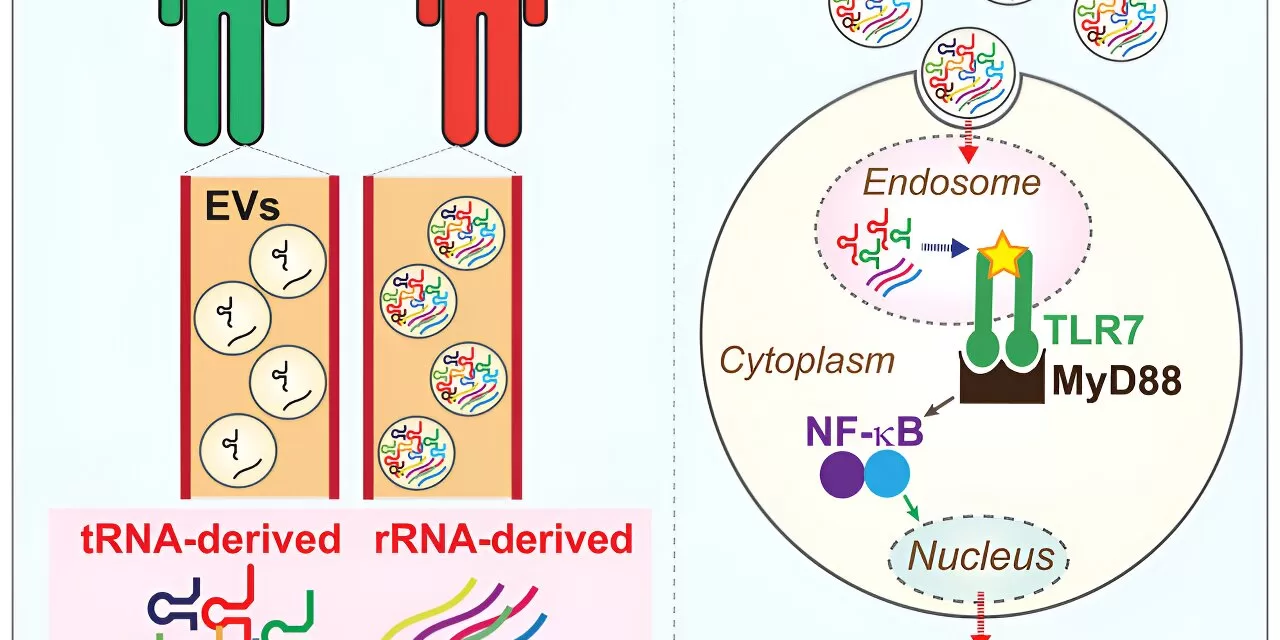August 29, 2024 – Philadelphia, PA
Tuberculosis (TB) continues to be a major global health challenge, claiming the lives of approximately 1.3 million people each year. In a groundbreaking study, researchers at Thomas Jefferson University have identified a class of RNA molecules that could play a crucial role in enhancing the body’s immune response to this deadly disease. The findings, published in the journal Molecular Therapy Nucleic Acids, open up new avenues for potential therapies and diagnostic tools to combat tuberculosis.
Led by Dr. Yohei Kirino, Ph.D., a molecular biologist at the university, the research team focused on small RNA molecules known as short noncoding RNAs. These molecules are known to emerge in the body in response to infections, but Dr. Kirino’s team discovered that their presence and role in TB-infected individuals are vastly different compared to those in healthy people.
“During an infection, we think these small noncoding RNAs work as an immune booster,” explained Dr. Kirino. “We believe there is an RNA pathway in the body that kickstarts the immune response to tuberculosis infection.”
The study, driven by Ph.D. student Justin Gumas, involved modifying the standard RNA sequencing techniques to capture a broader spectrum of these short noncoding RNAs. Traditional sequencing methods often miss these RNAs due to their unique chemical structure. To overcome this, the researchers treated the RNA samples with an enzyme that equipped them with the necessary features for sequencing. This innovative approach allowed the team to identify numerous short noncoding RNAs that had not been detected before.
Importantly, many of these newly identified RNAs were found to activate the immune system, suggesting they play a significant role in the body’s defense against TB. The discovery not only enhances the understanding of how the immune system responds to tuberculosis but also provides a valuable pool of potential therapeutic targets and biomarkers. These biomarkers could help estimate the severity of the immune response in TB patients, leading to more personalized and effective treatments.
“These findings offer a potential pathway to bolster the immune system against TB infection,” said Dr. Kirino. “With further research, we could develop new therapies that harness these small RNAs to enhance immune function, offering new hope in the fight against one of the world’s deadliest diseases.”
The study marks a significant advancement in TB research, highlighting the critical role of small noncoding RNAs in immune response and opening the door to innovative therapeutic strategies. As tuberculosis continues to pose a severe public health threat, this research could pave the way for new methods to improve patient outcomes and ultimately reduce the global burden of the disease.
For more detailed information, the study can be accessed through the journal Molecular Therapy – Nucleic Acids, under the title “Immunostimulatory short non-coding RNAs in the circulation of patients with tuberculosis infection” by Justin Gumas et al. (DOI: 10.1016/j.omtn.2024.102156).










